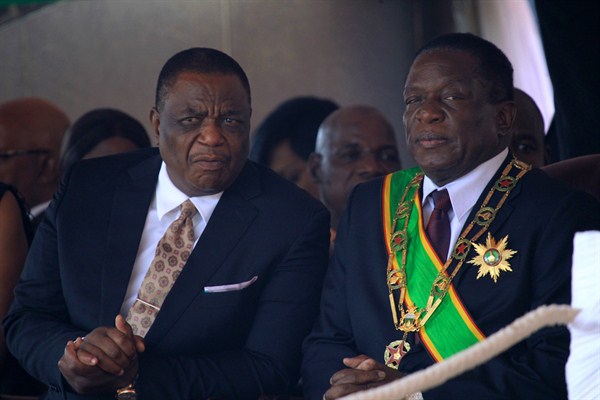After Zimbabwe’s elections late last month, the first without Robert Mugabe on the ballot, it seems that the more things change, the more they stay the same. Despite pre-poll speculation that the vote might usher in an era of change and renewal after 38 years under the ruling ZANU-PF party—and two decades of steep political and economic decline—a new dawn stubbornly failed to arrive.
Zimbabwe has a largely unchanged political landscape, still dominated by ZANU-PF. Emmerson Mnangagwa retained the presidency with 50.8 percent of the vote over Nelson Chamisa of the opposition MDC Alliance, who got 44.3 percent. ZANU-PF has consolidated its parliamentary position with another two-thirds majority, securing 144 seats to the MDC’s 61.
Election outcomes are rarely determined by one factor alone, but there is still an overriding explanation for this result: the very nature of Zimbabwe’s political system. In keeping with other former liberation parties in Southern Africa, ZANU-PF has entrenched itself in power for four decades by turning Zimbabwe into a de facto one-party state, laying claim to a unique and privileged status because of its role in the post-colonial struggle against white minority rule. This status takes precedence over the formal political system and such inconvenient things as free, competitive elections and even the possibility of parties alternating in government. ZANU-PF draws upon self-serving party mythologies and an official “patriotic history” to try and delegitimize opposition parties, which are invariably characterized in crude, hyperbolic terms—cast as the agents of foreign powers, or accused of seeking to restore minority rule.

